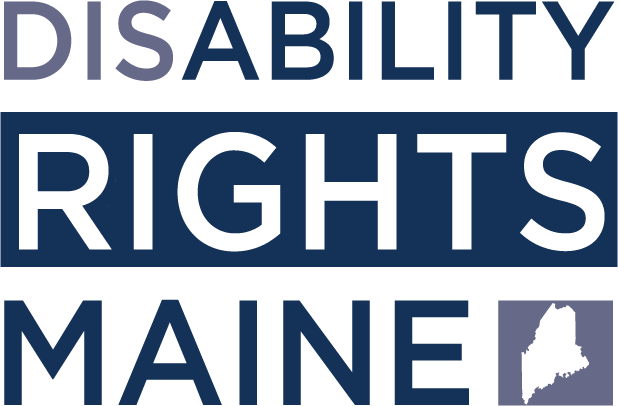April is Sexual Assault Awareness Month (SAAM), and this year the National Sexual Violence Resource Center (NSVRC) has made the theme of this year’s SAAM Drawing Connection: Prevention Demands Equity. As the State of Maine’s Protection & Advocacy organization (P&A) for people with disabilities, DRM is committed to lifting up the often silenced and ignored voices of disabled survivors of sexual violence.
According to the U.S. Department of Justice, people with disabilities are survivors of violence 4 times more than people without disabilities (2021). Nationally, as many as 83% of women and 32% of men with developmental disabilities experience sexual violence (MECASA). Even with these really high numbers, we know that sexual violence (especially against people with disabilities) is not talked about enough.
People with disabilities, encounter many barriers to getting help with sexual violence. Will I be believed? Will medical or law enforcement staff know how to support me? Something mentioned less often is the intersection of sexual violence and guardianship. A large number of people with disabilities are under guardianship, where most often a family member or caregiver is given the legal authority to make all decisions – medical and the day-to-day. This reduces the rights of people with disabilities to self-determination, which itself is a major protective factor against sexual violence. The issue of guardianship in particular needs to be a part of any conversations involving sexual violence against people with disabilities. While many sexual violence response systems have made great strides to support survivors who also have disabilities, there is still work to do at the systemic level.
Part of the issue is not just with response, but also with prevention and education. For far too many people with disabilities, we are infantilized and spoken for. Even today in 2023, some people still think that people with disabilities are not interested in intimacy at all. This makes supporting survivors difficult, because the false assumption is that people with disabilities are not having sex. Supporting disabled survivors of violence means there has to be prevention before it even takes place.
Not just this month, but every month, agencies who work with people with disabilities need to be thinking about how to incorporate accessible information about sexual violence and sex education. People with disabilities have been missing from this conversation, and they need to be included. People with disabilities are adults and are entitled to have information made available to them around sexuality and safe practices.
Disability Rights Maine and our partners with Speaking Up For Us (SUFU), the Maine Coalition to End Sexual Violence (MECASA), and the Maine Association of Community Service Providers (MACSP) will begin to address the unique needs of Mainer’s with disabilities through a grant award from the Department of Justice (DOJ) Office on Violence Against Women (OVW). The OVW Disability Grant gives DRM the opportunity to partner with these statewide organizations to better understand the needs and develop capacity to better support people with disabilities who have faced sexual violence. This collaboration is going to conduct an in-depth needs assessment for sexual violence survivors with disabilities across the state of Maine, and then develop a strategic plan to address those barriers.
Stay tuned for updates in the coming months for ways to participate in the needs assessment
